Review for Kakera: A Piece Of Our Life
Introduction
I'm an anime nut of long standing, and one of my favourite anime genres is the 'slice of life'. It's those shows that are about the characters, not necessarily a grand narrative, or major plot developments and epic tales. It's a matter of capturing a moment in time, in following a group of characters over a defined period, empathising with them, sharing in their joys and their concerns. It's really bizarre in that were it live action, it would be considered a soap opera, and soap operas are something that I steer clear of like the plague. Kakera: A Piece Of Our Life can be considered a live action slice of life movie, and in fact is loosely adapted from a manga by Erika Sakurazawa called 'Love Vibes'. It's a tale of an unconventional love that arises between two very different women. Earlier this year I enjoyed the slice of life anime Aoi Hana, a tender tale of first love for two schoolgirls. Maybe I'm ready to try some live action slice of life again.
Haru is a college student in a dead end relationship with her boyfriend. He's idle, unaffectionate, and always promising to ditch his other girl and never quite managing it. Yet the safety net of a relationship is holding Haru back, and on top of that she's introverted, mousy, and a little grungy. Yet she somehow catches the eye of Riko, an outgoing and forward prosthetics artist, who sees something special in Haru. Riko's work entails making broken people whole again, and while Haru may be physically whole, Riko sees that Haru is incomplete emotionally, an emptiness that she may be able to fill. And so the two fall in love, but there are plenty of pitfalls to overcome, and the biggest obstacles may be each other.
The Disc
Kakera gets a 1.85:1 anamorphic transfer, which as so often happens is a standards conversion. It's clear and colourful enough, and the detail levels are strong. There may be a hint of ghosting, but this isn't a film to suffer too greatly from conversion artefacts, the only real sign is a general softness. The only audio track is a DD 2.0 Japanese stereo track, with optional English subtitles. It's a dialogue heavy film, so surround vibrancy isn't exactly a priority, although it may have benefited the film's music, which is quirky and evocative, but never overwhelming.
The check disc suffered from a couple of dropped frames, but I am assured that this has been rectified for the retail release.
Extras
Kakera gets a nice set of animated menus, and on the disc, you can find the trailer for Kakera, as well as 18 other trailers for Third Window product.
There are also a couple of substantial featurettes to enjoy, beginning with a Conversation With Director Momoko Ando and Jasper Sharp. This lasts 29 minutes, and sees the director at the ICA for the simultaneous UK and Japanese premiere earlier this year. It's a nice chat about the film, and they talk around it as well about Japanese independent cinema and more.
The Q & A Session at the ICA, London Premiere lasts 22 minutes, and offers more about the film, this time with the director answering questions from an audience fresh from having seen the film. There's also more detail about the story, and some of the creative choices, so you may want to be wary of this if you don't want your interpretation of the film challenged.
The dialogue in these featurettes is clear throughout, but the recording conditions weren't ideal, with the sound a little hollow. While I had no problem making out what was said, subtitles would have been nice.
Conclusion
I didn't particularly enjoy Kakera, although given my preference for escapist elements in the entertainment I consume, that isn't particularly surprising. There may be directorial flair in Kakera, there may be moments of creative whimsy, and the performances from the lead actresses are appealing, but at the heart of it, Kakera's exploration of the relationship between Haru and Riko is nothing if not realistic. In fact, I'd tend to think that despite some very touching and human moments in the film, there's a small undercurrent of cynicism in the evaluation of human relationships. Although now I'm worried that it says more about me as the observer, than it does about the filmmaker's intentions.
It is very much a slice of life movie, not a soap opera. For a soap opera you need plodding direction, a script soaked in melodrama, and histrionic laden performances. Kakera is very much a character study, a moment in time where two lives intersect. Haru is mousy, introverted, and lacks self-esteem. She's in an unrewarding relationship with a boyfriend who takes her for granted, uses her for sex, but is indifferent otherwise, while devoting his emotional energy to another girl, who he keeps promising Haru that he will ditch. As so often happens, it's inertia that is keeping Haru where she is, preferring togetherness to solitude, unwilling to break the chains of mundanity. Emotionally she is empty, which is where Riko comes in.
Riko is the medical technician, a prosthetics artist that creates body parts to make the maimed whole again. It's a mission that is obviously a driving force in her life, and why she seems such a good fit for Haru. It's a cappuccino moustache that attracts her to Haru, but seeing her drift through life on emotional autopilot certainly spurs Riko to want to heal Haru as well. The film takes us with them on the roller-coaster ride of their relationship, from the tentative courtship, the falling in love, the peak of togetherness, through the other side to the comfort zone, the taking for granted, and falling apart. Haru's ex boyfriend is more of a concern than societal disapproval, although I think Haru's innate shyness and reluctance to be demonstrative is more a reflection of what society would think, as opposed to any obvious external censure.
It's a film about journeys, and the obvious one is Haru's journey from introvert, reliant on others, to confident and independent. But there is also the journey, or rather lack of, which Riko is on. She's devoted herself to healing others, both in her work and in her personal life, but it turns out that she isn't the knight in shining armour that Haru needs, she isn't the knight in shining armour that she thinks she is, and there is far less than pure altruism in her motives. While she may be brash, confident, and outgoing, the fact is that in her own way, she is just as incomplete as Haru, and the sad thing is, that is the one missing piece that she is blind to.
Kakera is an interesting film, with engaging characters, a well-told story, and a rather stylised perspective on human interaction. It's well worth a watch as a measured piece of Japanese independent cinema. It's just that I came away from the film feeling a little depressed and downhearted, and I don't think that was the filmmaker's intention.
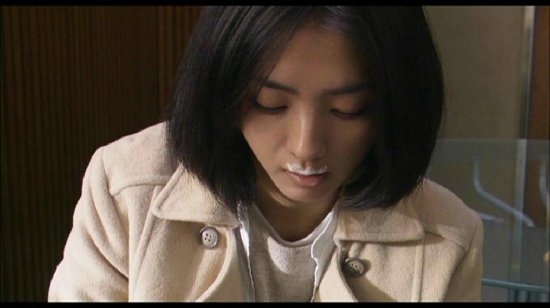
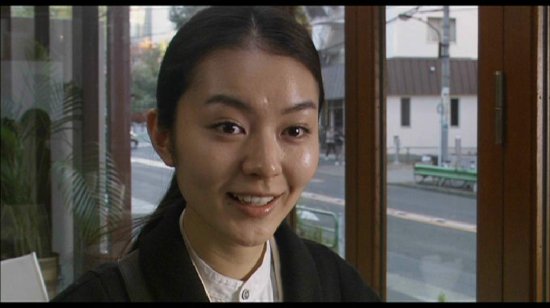
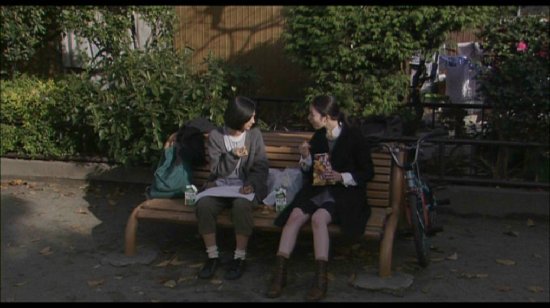
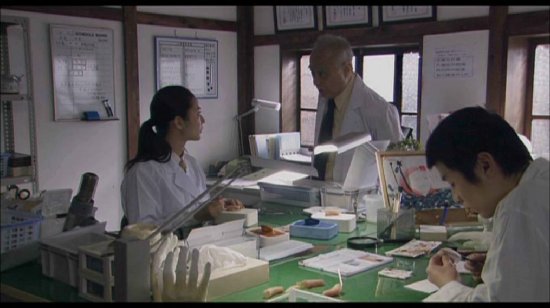
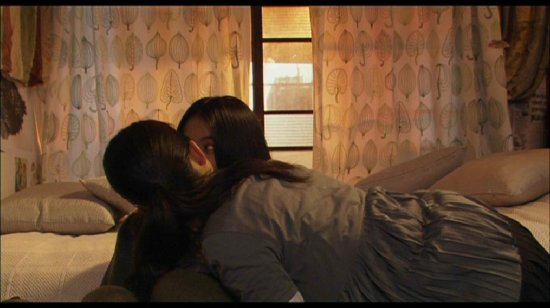
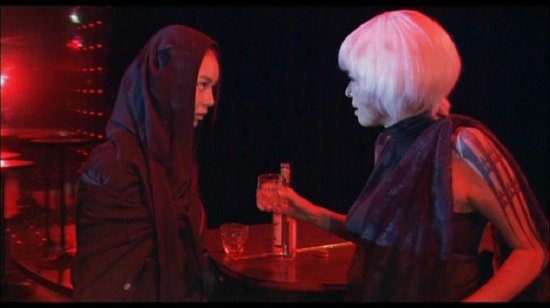
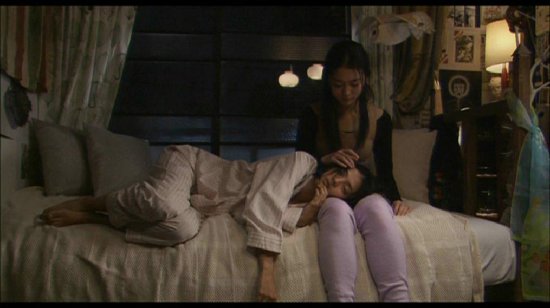
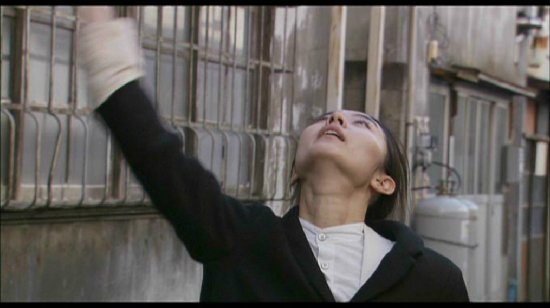
Your Opinions and Comments
Be the first to post a comment!